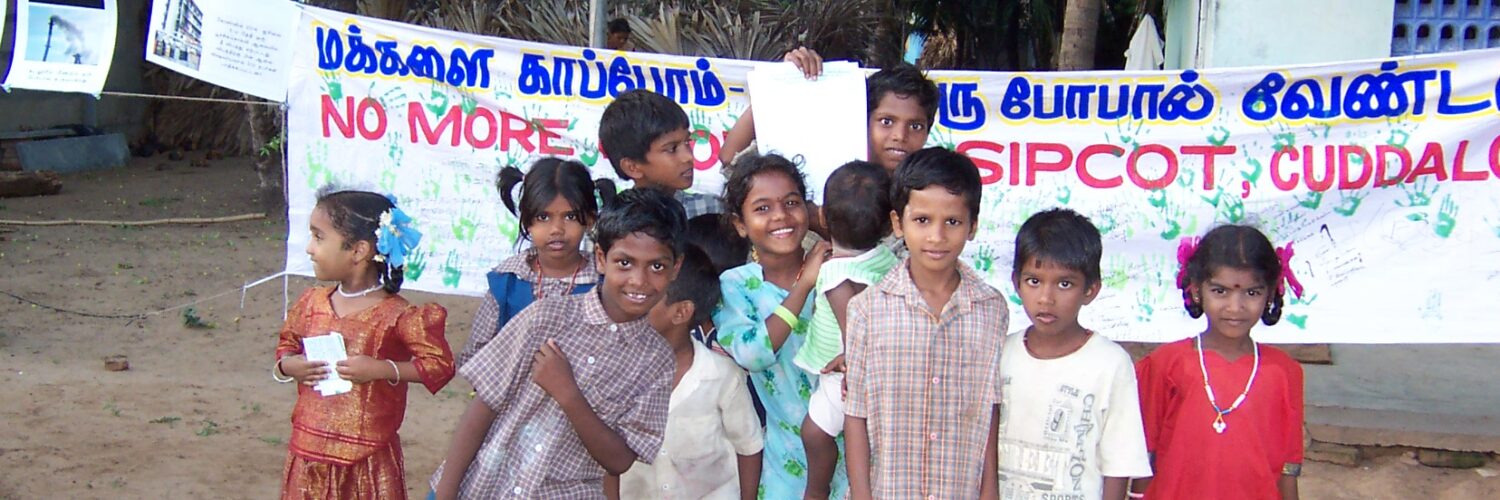Deccan Chronicle
www.deccan.com/
By our correspondent
July 26, 2005
Chennai, July 25: The Mettur Indian People’s Tribunal on Environment and Human Rights, a panel constituted by activists, released a report in the city on Monday on the “indiscriminate disposal” of hazardous wastes by Chemplast Sanmar in Mettur near Salem district of Tamil Nadu.
The panel headed by Justice Akbar Basha Kadri, retired judge, Madras high court, which went on a three-day tour of the 35 villages surrounding Mettur between April 29 and May 1 this year, claimed that Chemplast Sanmar and MALCO have caused “irreparable damage” to the people and environment of the town.
Speaking to reporters here, Justice Kadri said the panel had met about 800 villagers and former employees of the two factories and were appalled by the health disorders the villagers were suffering from, allegedly because of the toxic effluents discharged by Chemplast with the consent of the state pollution board into the river Cauvery.
Many women had suffered miscarriages and children had lung disorders, while several residents were suffering from lung and stomach cancer. Due to handling mercury wastes, without gloves, some of the villagers’ hands had turned white and fingers had become crooked. Even the cattle and goats had died, he claimed.
R. Madeswaran, a villager from Mettur, alleged that the chemical release from Chemplast’s chlorine plant last year had caused severe damage to the health of children in the town and the villagers had spent a fortune on hospitals for treatment. He said that whey they lodged a complaint with the police, the authorities claimed that there was no leak. Mr. Kadri said that the agricultural land had become unfit for the cultivation of any crop. Even the water in the 15 wells they had surveyed had become brackish and was emitting a foul smell. The red mud dumped on the banks of the Stanley reservoir by MALCO Ltd could pose a threat to the rivers in the state by polluting them, according to the panel. Based on its findings, the panel has made a few recommendations like supply of clean water to the villagers, compensation for the damage to health and cattle and an immediate stop to the dumping of red mud, among others. The villagers do not want the factories to close down, but only follow the prescribed norms.
In response to the panel’s study, Chemplast issued a statement on Monday condemning the campaign as malicious. The company claimed that it has not violated the norms prescribed by the Tamilnadu Pollution Control Board. The release said, that it did not manufacture many of the chemicals as claimed by the panel. Chemplast was not responsible for the death of any fish in river Cauvery and it had not discharged any smelly effluent into the river. It also said that the quantum of effluent discharge had come down from 4000 KL to 1500 KL per day.
The company has launched a programme to achieve zero discharge at Mettur at a cost of Rs. 20 crores. The treated solid waste generated in its plant was placed in secure landfills and there was no possibility of percolation of wastes from the pits to the adjacent sub-soil and water
bodies, the company said.
